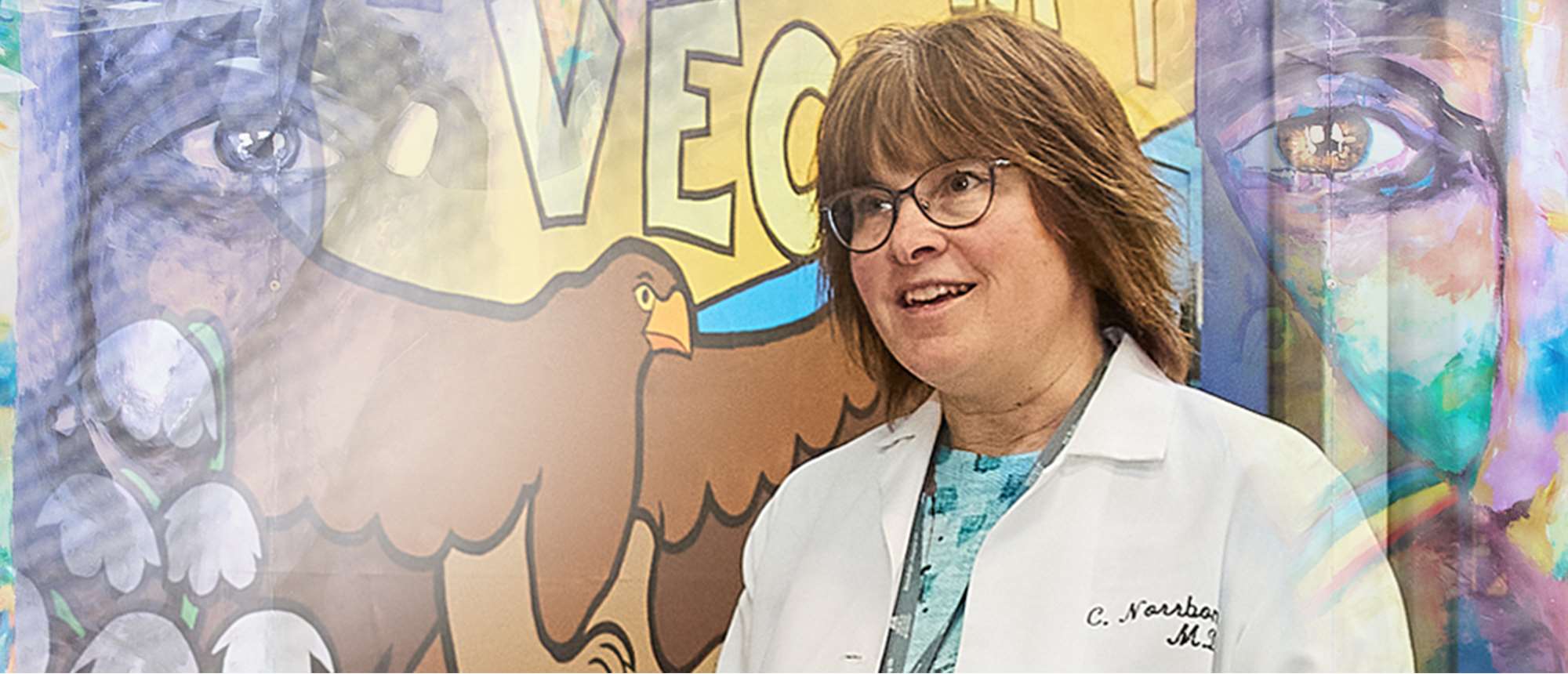Building Community Trust to Address Rural Health Disparities

Corina Norrbom, MD, has been a pivotal figure in advancing community health and medical education in Central Wisconsin. As an assistant professor at the Medical College of Wisconsin (MCW)-Central Wisconsin and a family medicine physician, she brings a wealth of experience and a deep commitment to improving healthcare access and outcomes for underserved populations.
Dr. Norrbom’s journey began with a solid foundation in family medicine. She spent the initial 12 years of her career practicing in Northeast Wisconsin, focusing on providing comprehensive care to rural communities. After working overseas as a rural general practice physician for two years, she returned to the U.S. with a renewed focus on community engagement and public health. This transition was a natural fit for the mission of MCW-Central Wisconsin, which she joined when the campus was established in 2016.
One of Dr. Norrbom’s significant contributions has been co-directing the Physician in the Community Scholarly Concentration. This program, which she developed in collaboration with Amy Prunuske, PhD, associate professor at MCW-Central Wisconsin, aims to produce medical students who are deeply engaged with their communities.
“I think it’s important for students to experience community-engaged medicine. In clinic and hospital settings, you can kind of get comfortable within your walls, but it’s essential for students to understand what’s going on with their patients before they come into the exam room or after you give them a treatment plan,” says Dr. Norrbom. “The work we’re doing is actively saving lives, and I hope to be a role model for the students, bringing them into this important work.”
Dr. Norrbom’s background in clinical medicine and community engagement combined with Dr. Prunuske’s expertise in basic science and education has resulted in a robust curriculum that addresses critical health issues from a community perspective. The program covers topics often overlooked in traditional medical education, such as addiction, early childhood impacts on health, and violence prevention.
Students are also required to undertake a two-year community-engaged scholarly project, ensuring they gain hands-on experience in addressing social determinants of health.
“Sometimes an individual’s lived environment is dangerous or unpleasant, or there may not be any green spaces or access to educational opportunities,” Dr. Norrbom says. “Basically, the zip code that you’re born into can have a major impact on your health.”
Dr. Norrbom’s commitment to community health is also evident in her involvement with the Wausau Free Clinic, which provides essential healthcare services to uninsured and underinsured populations, including undocumented individuals. She highlights the clinic’s evolution, noting how it initially served homeless individuals and later expanded to address broader community needs. Through her work with community health workers, Dr. Norrbom helps bridge gaps in care for Hispanic and Hmong populations, conducting immunization clinics and health screenings in accessible community settings.
For Dr. Norrbom, community-engaged medicine is not just about providing care, but also understanding the broader context of her patients’ lives. She believes that medical students must learn to appreciate the complexities of social determinants of health to become effective practitioners.
“Engaging with the community is important because there’s not any one sector that can address these determinants on their own,” she says. “It’s work between health systems, businesses, government—you name it.”
Dr. Norrbom’s approach is characterized by a strong emphasis on relationship-building and collaboration. She fosters connections between students and community members, helping them understand the importance of empathy and cultural competence in medical practice. Her work with the Hmong and Hispanic communities underscores the need for culturally sensitive care and the value of listening to patients’ stories.
Beyond her roles at MCW and the Wausau Free Clinic, Dr. Norrbom collaborates with numerous organizations that aim to enhance healthcare access and education throughout the region, including the Wisconsin Institute for Public Policy and Service, local school districts and county health departments, Healthy Opportunities for Latin Americans, Hmong American Center, LENA Foundation, Covering Wisconsin and the United Way of Marathon County.
Her impact on medical education is also profound. She encourages her students to see the bigger picture, engage with their communities actively, and understand the social factors influencing health. As she continues to inspire and mentor the next generation of healthcare professionals, Dr. Norrbom remains a vital force in promoting health equity and improving the well-being of underserved populations in Central Wisconsin.



